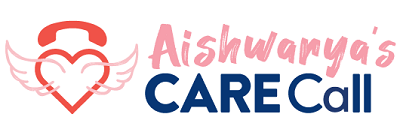Aishwarya’s CARE Call

Making an Aishwarya’s CARE Call
Aishwarya’s CARE Call is the process in WA public hospitals for you as a patient, carer or family member to use if you are worried you or the person you care for is getting sicker whilst in hospital.
The 3-step process is in place to ensure the nurses and doctors caring for you are aware of any changes to your health.
You know yourself or the person you care for best. Follow the steps below if you, or the person you care for gets sicker while in hospital.
Step 1 – If you are worried about a change in your condition or the person you care for, tell a nurse or staff member.
Step 2 – If you are still worried, tell a senior nurse or staff member.
Step 3 – If your concern is urgent you can call the Aishwarya CARE Call line on 1800 792 621.
Why is it called Aishwarya’s CARE Call?
WA Health worked closely with Aishwarya’s parents to implement the change. All materials used to promote Aishwarya’s CARE Call have been created in bright colours, with the logo in pink to reflect Aishwarya’s favourite colour.
When shouldn't I make an Aishwarya’s CARE Call?
If you have a complaint or feedback about something other than the urgent clinical concerns about a patient, please speak to your nurse or visit our Compliments and complaints.
Download Aishwarya’s CARE Call flyers in the languages below:
Aboriginal - Aishwarya's CARE Call (PDF)
Lwo (Acholi) - Aishwarya's CARE Call (PDF)
Af-Soomaali (Somali) - Aishwarya's CARE Call (PDF)
لعربية (Arabic) - Aishwarya's CARE Call (PDF)
မြန်မာ (Burmese) - Aishwarya's CARE Call (PDF)
درى (Dari) - Aishwarya's CARE Call (PDF)
Thuɔŋjäŋ (Dinka) - Aishwarya's CARE Call (PDF)
English - Aishwarya's CARE Call (PDF)
فارسی (Farsi) - Aishwarya's CARE Call (PDF)
Français (French) - Aishwarya's CARE Call (PDF)
هزارگی (Hazaragi) - Aishwarya's CARE Call (PDF)
Bahasa Indonesia (Indonesian) - Aishwarya's CARE Call (PDF)
Italiano (Italian) - Aishwarya's CARE Call (PDF)
ကညီကျိာ (Karen) - Aishwarya's CARE Call (PDF)
ភាសាខ្មែរ (Khmer) - Aishwarya's CARE Call (PDF)
Kirundi - Aishwarya's CARE Call (PDF)
简体中文 (Chinese simplified) - Aishwarya's CARE Call (PDF)
Español (Spanish) - Aishwarya's CARE Call (PDF)
Kiswahili (Swahili) - Aishwarya's CARE Call (PDF)
தமிழ் (Tamil) - Aishwarya's CARE Call (PDF)
ภาษาไทย (Thai) - Aishwarya's CARE Call (PDF)

